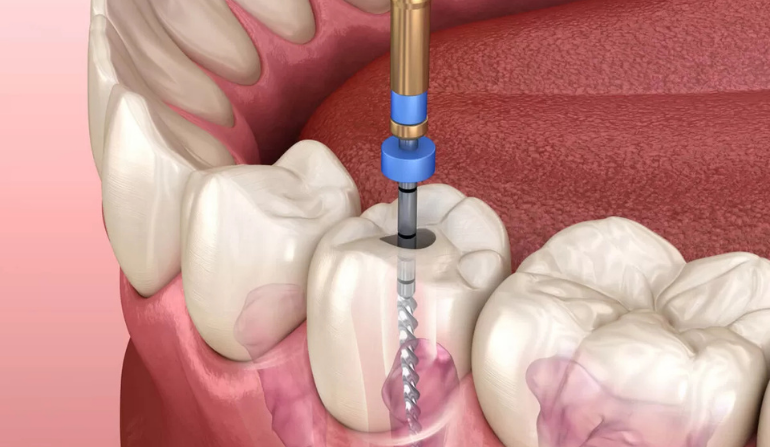Ataköy 7-8-9-10 Ataköy Towers A Blok Kat 14 No: 169, 34156 Bakırköy/İstanbul
Root Canal Retreatment

Root Canal Retreatment
Root canal retreatment is a procedure performed when a previously treated tooth develops new complications or fails to heal properly. Typically, teeth treated with root canal therapy remain healthy for many years, but certain circumstances can lead to recurrent issues, such as infection or persistent pain, necessitating retreatment.
Common causes for root canal retreatment include incomplete cleaning of the canals, inadequate filling materials, new cracks or fractures in the tooth, or breakdown of the restoration material over time. Additionally, new decay or infection in the treated tooth may also require retreatment.
During the procedure, the old root canal fillings are removed, and the canals are meticulously cleaned again. Any infected areas are sterilized, and the canals are refilled with appropriate materials. Finally, the tooth is restored with a new filling or crown to ensure its structural integrity and functionality.
Root canal retreatment is a crucial step in saving a tooth that might otherwise need extraction. Advances in dental technology allow for more precise and effective retreatment, improving the chances of long-term success. Early diagnosis and timely intervention are essential for the best outcomes.
